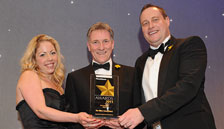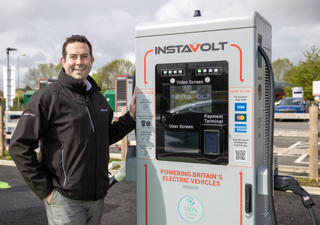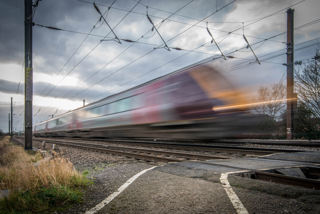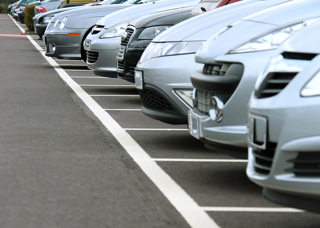Business success is often about timing: The Miles Consultancy (TMC) is in the right place at the right time.
HM Revenue and Customs has started to delve deep into the company car mileage records held by businesses searching for inflated reimbursement claims.
Its strike rate is incredible – almost every record checked shows inaccuracies.
Fleets are starting to sweat and this is where TMC has stepped in: its mileage capture system delivers the solution.
Mileage capture/auditing is now TMC’s core product, but it wasn’t always that way.
The business was founded in 2002 as a supplier of cash allowance products. Mileage capture was a complementary product.
Then HMRC started sniffing about and TMC’s priorities flipped.
“We are finding that 90% of our clients come on board because HMRC is checking their business,” says TMC managing director Paul Jackson.
“HMRC has found a problem and the companies need help.”
Once the flood gates open, the scrutiny is intense.
The volume of fuel put in the car will be cross-checked against the size of the tank; the distance travelled per litre bought will be analysed; records where the private-business split is not 40:60 will ring alarm bells; and claims will be matched against the starting point and postcode destination to check the distance.
HMRC selects 10 driver records to check; an error on just one is enough to warrant a full-scale investigation.
“You will be guilty until proven innocent,” says Jackson. “Mileage returns are always over-claimed. It is human nature and it’s getting worse.”
For first offences, HMRC will go back two years to check records; for second offences, it will go back up to six years.
Companies will be required to re-pay the tax and they will be fined half of what they paid the driver.
The sums involved can be eye-watering. One pharmaceutical company has just agreed a £700,000 settlement for its 520 drivers.
Another on-going case concerns a fine of £4.2 million for an organisation with 540 drivers.
Fleet News: How can TMC help a company that is worried about possible fraudulent fuel claims?
Paul Jackson: HMRC will only check records going back one year so the quicker you get a mileage capture system, the more likely you are to be ok when HMRC does an audit.
We can save companies typically eight times our fees just by doing the audit, sometimes 12 times.
After six months we will save around 25% in claimed mileage; in the public sector, it’s even higher – at least 40%.
Taking us on is risk-free: in our contract we guarantee to save you more than our fees. We’ve never had to pay a penny yet.
FN: How can a company protect itself – what tell-tale signs does it need to look out for?
PJ: First of all, around 90% of companies aren’t doing this properly. I suggest companies check three areas:
- Trips that end in a zero. If it is any more than 15% of the claims, then something is wrong.
- Do the fuel card receipts match the odometer? If they don’t, jerry cans could be involved.
- Check the 40/60 rule for private to business mileage.
Some companies have turned a blind eye or have encouraged the practice because they can’t give a pay rise. But now they are starting to crack down on it.
FN: Is there any difference between cars and vans?
PJ: Van drivers are the jerry can brigade. HMRC is jumping on personal usage by visiting campsites and supermarket car parks to check for vans with livery on the side.
If just one driver is found to be using their van for personal use, the company will have to prove its other drivers aren’t doing the same – it’s guilty until proven innocent again.
However, cars are the main focus because it is easier for HMRC to check records.
FN: How endemic is the problem in vans?
PJ: It’s rife. It’s a smaller cost but it’s as big a problem. Most van drivers go beyond ‘incidental use’ .
We are still learning in this area but we expect HMRC will pay greater attention to vans within the next 18 months.
FN: Are you finding that environmental concerns are rising up the agenda following the recession?
PJ: Twelve months ago no-one gave a damn about it. Now it’s back on the agenda but it’s disguised in the form of saving money.
People are asking for more reporting, especially on cash-allowance drivers. Many tend to have cars above 200g/km.
I wish more corporations would say ‘if you don’t do more than 30mpg we will only pay you a certain pence per mile – you pay for the rest yourself’.
FN: What policies work best in tackling both the environment and cost concerns?
PJ: People should be targeted to achieve a certain mpg out of their car and paid on the back of that. The better they drive, the better off they are.
The perfect scenario is to not use Advisory Fuel Rates (AFRs). Instead, use an average – for example, 14ppm – where people who choose a good car make money and those that don’t have to pay themselves.
It should be the same approach from company car drivers and cash-allowance takers.
Jackson believes companies need to take more seriously the impact of cash allowance takers on the environment.
But it’s not just a green issue – it’s also duty-of-care.
Until there is a high-profile court case with a seven-figure pay-out, companies will continue to ignore the problem. This is at their peril.
“Two years ago a cash allowance taker hit a person at a bus stop and paralysed them. They had had a drink but weren’t over the limit, but they had been banned from driving,” Jackson says.
“The company settled out of court for £1.5 million. It was paying for fuel so it was their responsibility. I’m sure there are many more out there.”
While TMC’s system allows reporting for cash takers, identifying the high risk drivers, the main impetus for growth over the next few years will be mileage reporting, particularly as fuel costs continue to rise.
“Within five years, every fleet will have a mileage capture system. HMRC will see to that with its inspections,” Jackson says.
TMC’s timing has been perfect.



















Login to comment
Comments
No comments have been made yet.